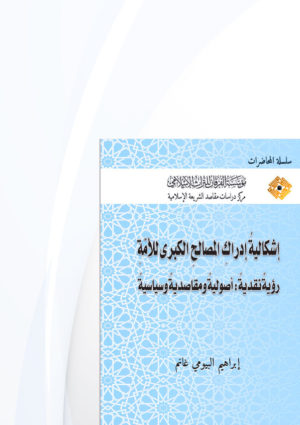The Centre for the Study of the Philosophy of Islamic Law (Maqāṣid Centre) at Al-Furqān Islamic Heritage Foundation (London), in collaboration with Association Espace Cadres (Faḍā’ al-Uṭur), organised a lecture titled “The Problematic of Defining the Umma’s Major Interests: A Multidimensional Critical View”. This keynote lecture was delivered on Monday evening, 8 May 2017CE (11 Sha‘bān 1438AH), at Ecole Mohammedia D'hôtellerie in Mohammedia, Morocco.
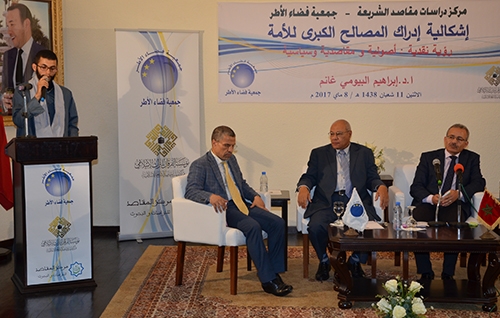
The session was chaired by Dr Mohamed Salim Elawa, who elaborated on the lecturer’s academic credentials. Moreover, he posed the question: How could the higher interests of the Muslim nation be a problematic issue?
On his part, Dr Ibrahim Bayoumi Ghanem attempted to explain individual terms in his lecture title. He noted that from a semantic perspective, the notion of “apprehending something” (al-idrāk) conveys two principal meanings: signalling awareness, on one hand, and achievement on the other.
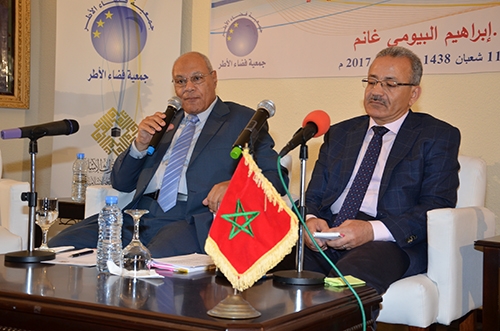
He discussed the rationale for the choice of topic. This related to the huge gap in the treatment of public interest (al-maṣlaḥah al-‘āmmah), known in historical works as mutual interest (al-maṣlaḥah al-mushtarakah). Dr Ghanem asserted that the problematic nature of this topic lay in its multiple dimensions and complex aspects. Indeed, in his view, this problematic issue is at the epicentre of the civilisational crisis endured by the Muslim nation for the last three centuries. Therefore, addressing this challenging issue is one of the principal approaches that may offer a way out of this crisis.
Dr Ghanem highlighted the absence of cumulative, novel contributions in the approach to the issue. He indicated the deficiency in addressing the contextual matters related to the public interest. He posed the question: who assures the public interest? What techniques secure its achievement? By what means are those responsible for securing the public interest held accountable?
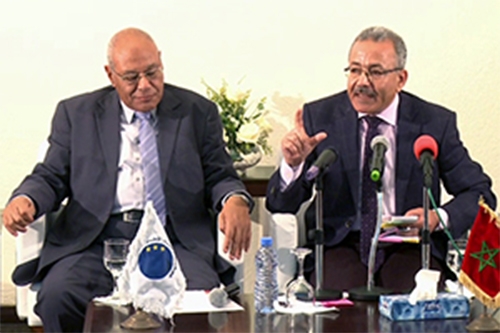
Dr Ghanem then elaborated on what he meant by the higher interest. He explored its lexical derivatives, and highlighted where it is cited in the Qur’ān. He also explained its terminological significance, while dwelling on its many means of classification. These—he explained—may be specific to a country or a particular individual, but are founded on original Islamic criteria. Furthermore, he indicated that an interest may be public at one time, and not so at another. Interests may also be variable (mutagayyirah), fixed (thābitah), or inclusive (shumūliyyah) and perpetual (abadiyyah).
The lecturer insightfully highlighted that the concept of universal interests (al-maṣāliḥ al-kulliyyah) is integral to forming and elaborating the definitive reference frame for the Islamic world view. Indeed, it is not a trivial concept—in his words—as it revolves around the higher principles and values that are intrinsic to the Muslim nation’s belief system. It also encapsulates the goals around which the Muslim nation models itself, and strives to achieve; In so doing, it marries the moral-ethical to the material.
Dr Ghanem called for the development of standards to measure the application of the general objectives of Islamic law. These may be used to measure performance of parliament, government, etc., in relation to governance in the public domain. In this context, the interest or maṣlaḥah would be a principal point for enquiry and accountability, in terms of how far it is secured.
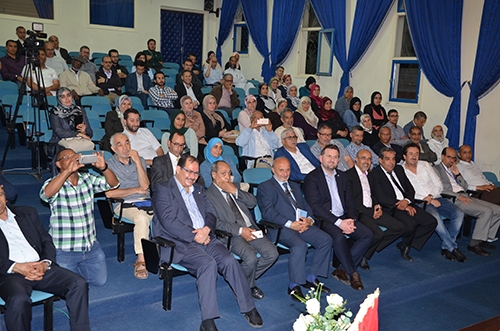
The lecturer continued by elucidating the diverse approaches adopted by legal theorists (al-uṣūliyyūn), vis-à-vis the concept of the interest or maṣlaḥah. It may be seen through the lens of three classes, namely necessities (ḍarūriyyāt), needs (ḥājiyyāt), and improvements (taḥsīniyyāt). It may also be described as dominant (rājiḥah) or outweighed (marjūḥah). Indeed, it may be defined using any other theoretical frames of classification. However, considerably less discussion is devoted to application and how it tackles the Muslim nation’s issues. He also explained that many forms of classification of the maṣlaḥah, exist in the contemporary context. Given the importance of this concept, it is quite frequently cited in different discourses in the domains of legal theory, politics, law, society, and philosophy. However, frequent usage is no indicator of clarity of meaning, nor does it signify agreement among the formulators of these discourses. Indeed, ruling elites allude to national interest, while social scientists discuss interests in relation to social laws. On the other hand, philosophers contemplate public good and public peace. The lecturer pointed to the absence of communication channels between these disparate domains, which did not facilitate articulating and manifesting higher interests in practice.
The lecturer then dwelt upon the forms of fixed and variable maṣlaḥah, as well as the certain (al-qaṭ‘iyyah) and surmised (al-ẓanniyyah). He reported scholars’ statements on the matter, and identified and disambiguated areas of dispute. He then addressed the historical context in the development of the notion of the public interest. He also discussed the relationship of public interest to governance in Islamic law (al-siyāsah al-shar‘iyyah). He described how those in power had expropriated the concept of obedience. Indeed, he emphasised that obedience in the public domain is conditional on consultation resulting in a binding collective decision. The lecturer underlined that in the historical context, the consideration of a majority, as the cornerstone of legitimacy of obedience, was abandoned. Subsequently, the concept of consultation in determining public interests was summarily discarded.
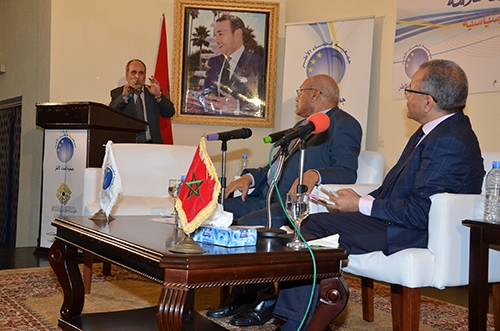
In the conclusion of his lecture, Dr Ibrahim Bayoumi Ghanem asserted that human dignity, justice, liberty, and public peace are universal (al-kulliyyah) interests that are immutable and fixed. He advocated profound examination of these interests, by defining them in terms of concept and establishing their scientific foundation. This would lead to an accumulation of a credible evidence base. In addition, it is vital to educate future generations regarding these interests. This starts with the family, mosque, and media, so as to implant these immutable principles in the collective psyche..
Related Video


